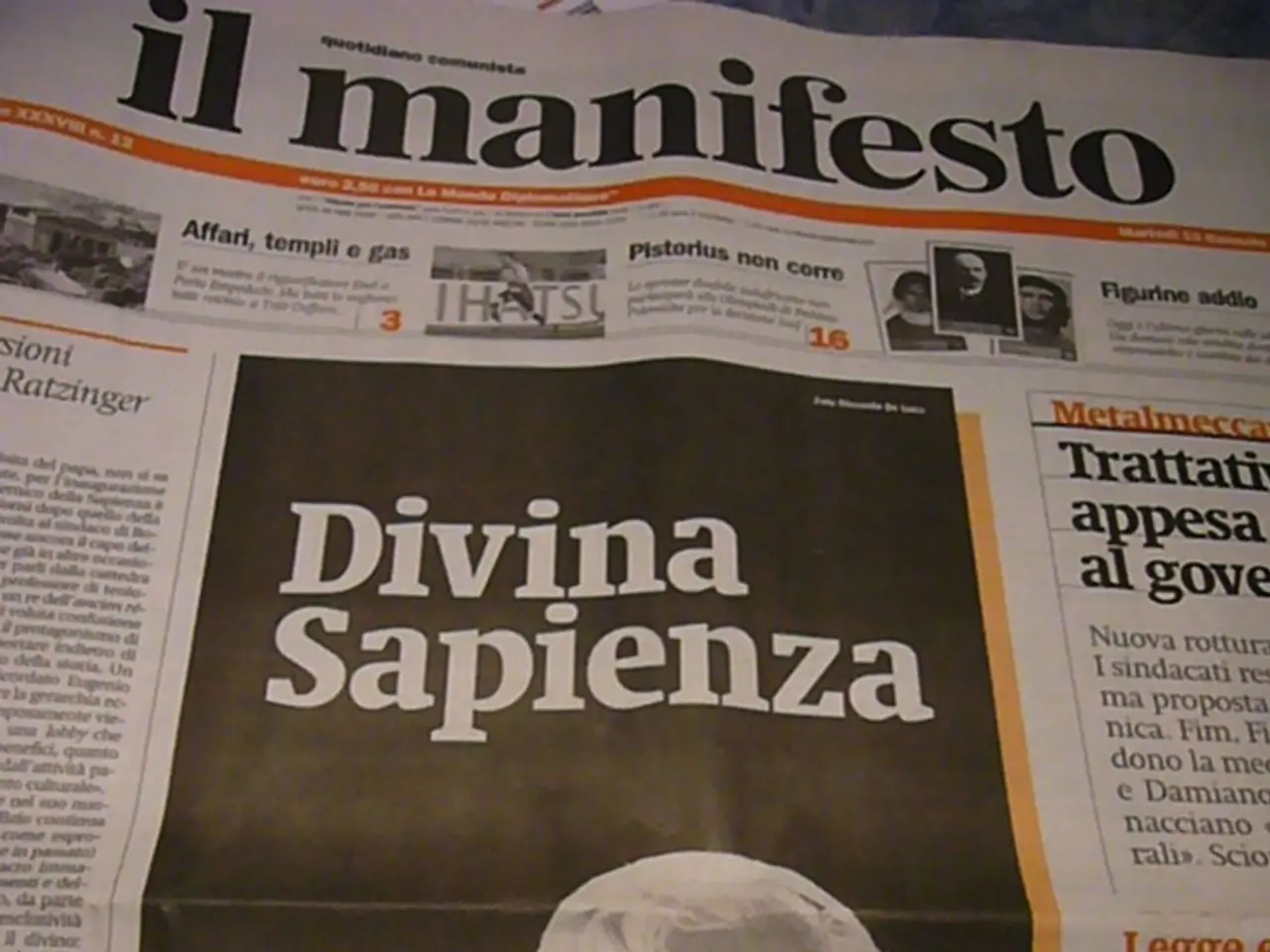Misleading information influences genuine occurrences
In the heart of Baku, Azerbaijan, the VI International Humanitarian Forum was held on October 26. During the forum, Dmitry Zhuk, the head of the publishing house "Belarus Segodnya," made a compelling statement regarding the growing issue of fake news.
The working session was titled "Disinformation Policy - A Threat to Stability in the Modern World." In this session, Zhuk underscored that fake news has become an integral part of our lives, and it can have a real impact on events. He emphasized the importance of journalistic ethics and fact-verification, urging information providers to be mindful of their responsibilities.
Zhuk noted that responsibility does not exist in principle in the case of social networks, where most fake news usually originates. He stressed that a real journalist is responsible for the completeness and authenticity of quotes and their reputation in society.
The global fight against misinformation is a complex endeavour, involving a combination of technological solutions, policy measures, public education, and multi-stakeholder collaboration. Some of the main strategies currently implemented include:
- The use of advanced technologies, especially generative AI, to detect and identify false information and malicious actors in real time.
- Active social media monitoring and digital literacy programs to empower individuals to critically evaluate information.
- Information-sharing partnerships among governments, industry, and cybersecurity stakeholders to build coordinated responses against misinformation campaigns.
- Legal and regulatory actions targeting harmful content, such as deepfake imagery and non-consensual intimate image distribution.
- The development of common frameworks and language to define and address online harms.
- Promotion of media literacy to help the public critically assess sources and verify information.
These strategies reflect recognition that misinformation is both a technological and social challenge, complicated by differing perceptions of truth and the need to balance intervention with freedom of expression. Effectiveness depends on early detection, transparency, and broad cooperation among all stakeholders globally.
Fake news is a global issue, affecting all countries regardless of size or level of development. As such, it is crucial for all parties involved to work together to combat this threat to stability in the modern world.
- The use of advanced technologies such as generative AI is critical in the global fight against misinformation, serving to detect and identify false information and malicious actors in real-time.
- To empower individuals to critically evaluate information, digital literacy programs are being actively implemented along with social media monitoring, while information-sharing partnerships are being established among governments, industry, and cybersecurity stakeholders.




